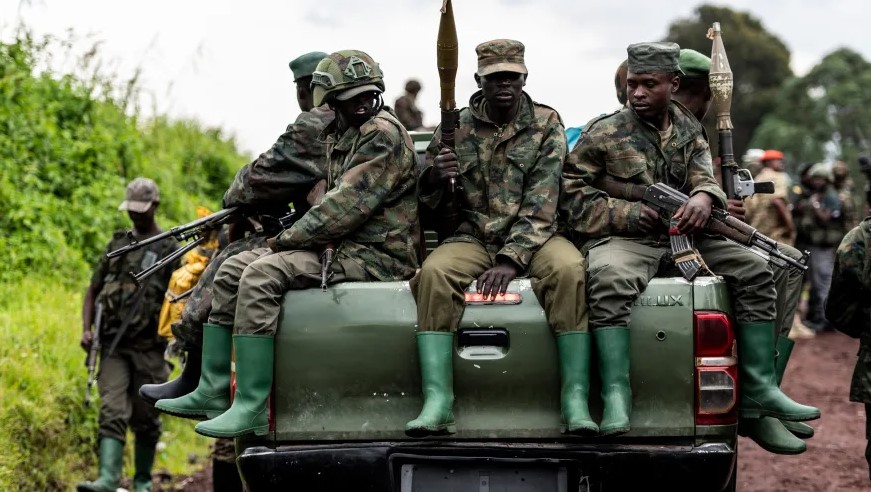After an extended period of rocky relations between Kenya and the Democratic Republic of the Congo (DRC), which saw the DRC withdraw its ambassador to Kenya, the two nations have reported to be making efforts in order to rebuild relations between them.
The Source of Tensions
Tensions between Kenya and the DRC have been particularly inflamed in the last year or so, and in particular in the last few months. In their origin, the tensions largely arose from the perceived failure of the East African Community Regional Force (EACRF) to quell instability in the eastern DRC.
The EACRF, a force which consisted of several nations of the EAC, was deployed in December of 2022 and was largely headed by Kenya. The EACRF was largely deployed as a peacekeeping force in order to occupy areas that the M23 rebels, one of the most prominent militant groups in the eastern DRC, had withdrawn from according to peace processes, as well as to engage in combat against smaller groups. The EACRF was not technically deployed to actively engage the M23, but had stated they were prepared to do so should the need arise.
In the perception of the DRC government, however, the EACRF was deployed in order to actively engage the M23. When they did not do so, the DRC accused them of colluding with rebel groups. As such, their mandate was not renewed the next year, and so the EACRF departed from the country at the end of 2023.

Given Kenya’s prominent role in the EACRF, Kenyan military authorities were in part blamed by the DRC for the EACRF’s accused incompetence.
Also in December of 2023 was the formation of the Congo River Alliance (AFC). The AFC is a group formed between smaller opposition politicians in the DRC, as well as a few rebel groups in the east. While these rebel groups are largely insignificant in the grand scheme of things within the region, they do include the M23. The AFC has essentially become synonymous with M23, as the M23 is effectively the head of the AFC and the bulk of its militant forces and the politicians effects on the group are rather minimal. As such, most people continue to refer to them as the M23, however the M23 releases statements under the banner of the AFC. An example of this is shown below.
COMMUNIQUE SUR LES APPELS DE CERTAINS ACTEURS INTERNATIONAUX AU #M23 DE SE RETIRER DES ZONES SOUS SON CONTRÔLE pic.twitter.com/yD1lBubZrZ
— M23RDCONGO (@M23_ARC) May 8, 2024
The formation of this group, announced by the DRC’s Former Independent National Electoral Commission boss Corneille Nangaa, took place in Nairobi, the capital city of Kenya. Due to this, and the M23’s prominence within the AFC, the DRC accused Kenya of supporting the M23.
Kenya denied the accusations, and stated that while they did not support Nangaa, his actions fell within the realm of free speech. The M23 itself was not present in Nairobi.
It was this particular issue, the formation of the AFC within Kenya’s borders, that led to the DRC recalling its ambassador to Kenya.
More recently, diplomatic relations were further strained on April 19th when the DRC arrested two employees of Kenya Airways. The two employees, one Kenyan national and one Congolese national, were arrested by the DRC’s military intelligence allegedly because they were missing customs documentation for high value cargo.
A court order promptly called for the release of the two employees, however the DRC initially refused, which caused Kenya Airways to halt all of their flights to and from the DRC.
Mending Relations
The two Kenya Airways employees were released at the beginning of last week, which prompted the airline to resume flights.
Diplomatically between the two nations efforts have been made as well to restore relations, with the path being paved for the DRC’s ambassador to Kenya to be reinstated.
In recent days, Kenyan President William Ruto sent Prime Cabinet Secretary and Foreign Affairs Minister Musalia Mudavadi with a “special message” for DRC President Felix Tshisekedi. Mudavadi met with Christophe Lutundula, the DRC’s Deputy Prime Minister and Minister of Foreign Affairs, in which the two discussed ways to foster cooperation between their nations, and the necessity for repairing relations.
“My mission here in Kinshasa was to deliver to President Felix Tshisekedi a special message from President William Ruto of Kenya, that we are partners and, as countries within the East African Community, have to continue working together very cordially and closely. Kenya respects the territory and sovereignty of DRC and I assure the people of DRC that Kenya will always work with them to ensure their peace and harmony in the region at all times. We are also happy the president communicated with us with a lot of respect and I have a message to take to President Ruto” -Kenyan Foreign Affairs Minister Musalia Mudavadi

Mudavadi further added that soon following the meeting that the “DRC ambassador, who had been recalled, will promptly resume duties in Nairobi.” In addition, the Kenyan ambassador to the DRC, Shem Amadi, was finally allowed to report to his station after being denied by the DRC the ability to do so.
The repairing of relations between the DRC and Kenya is a step in the right direction for the EAC, who seeks to foster cooperation between its member states with the intention of eventually federating into one, unified state. However, the DRC holds tensions with two other EAC member states in particular; Uganda and Rwanda. Both nations have previously invaded the DRC, and in modernity Rwanda is accused of supporting the M23.

Uganda has also been accused of supporting the M23, however their level of alleged support pales in comparison to that of Rwanda, who has been accused of not only providing material and financial support, but also of deploying troops to fight alongside the M23.


